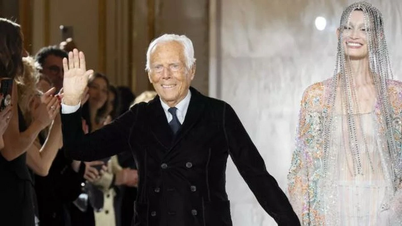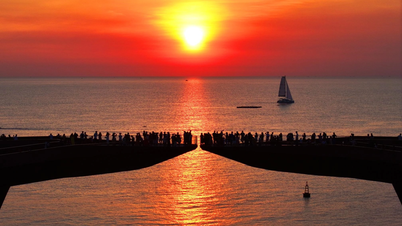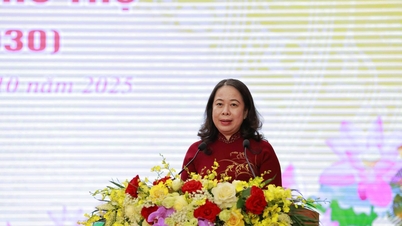In 2017, when football superstar Cristiano Ronaldo was about to join Juventus, the Italian government launched a bold policy, which was later dubbed by the financial world after him: the “CR7 law”. Not just a tactic on the pitch, this was also an economic lever with a thousand gold weight: an extremely attractive flat tax regime for wealthy foreign individuals.
Accordingly, anyone who moves to Italy and becomes a resident, with tax, they only need to pay a fixed fee of 200,000 euros per year (about 233,000 USD) to be completely exempted from all income arising outside the country's territory.
The figure applies to all profits, from financial investments, image copyrights, capital gains to inheritance. The fee for each accompanying family member is even more favorable, only 25,000 euros. The policy is valid for up to 15 years, a long enough period for wealthy families to confidently build a new business.
For the super-rich, it's an offer they can't refuse. Matteo Pella, a senior broker at Berkshire Hathaway HomeServices, puts it figuratively: "For them, the tax is nothing. It's like coffee: today it's 2 euros, tomorrow it's 4 euros, and you're not going to stop drinking it."
The simplicity and clarity of the "CR7 law" has created a huge pull, turning Italy into a magnet for global assets.
The Migration of Millionaires
The tax gamble paid off sooner than expected. According to a report by Henley & Partners, a leading investment and immigration advisory firm, Italy has become the number one destination in Europe and the third in the world for millionaires to move to by 2025. An estimated 3,600 millionaires will choose the “boot-shaped country” as their new home, behind only the United Arab Emirates (9,800) and the United States (7,500).
Big names in global finance and business have emerged one after another. Egypt’s richest billionaire, Nassef Sawiris, co-owner of Aston Villa football club, and Goldman Sachs’s vice president of investment banking, Richard Gnodde, are typical examples of this wave of elite migration. They brought not only personal wealth but also relationships, investment opportunities and a high-class lifestyle.
The exodus comes amid a global tax divide. While the UK has decided to abolish its 200-year-old non-domiciled regime, a move that has seen many banks and investment funds leave London after Brexit, Italy is taking the opposite path.
“People around the world are asking us: How can we attract British millionaires and billionaires to their home countries?” says Stuart Wakeling, managing partner at Henley & Partners UK. Italy has its own answer.

Italy is becoming an attractive destination for the super-rich with its unique tax policy (Photo: Getty).
Milan reborn as new financial capital
At the heart of this transformation is Milan, a city long known as Italy’s fashion and industrial capital. Now it is taking on a new identity: a vibrant international financial center.
“Milan has changed a lot,” says Anna Cipriani, membership director of the elite club Casa Cipriani Milano. “It is no longer just an industrial or fashion city, it now attracts creatives, investors and the international community.”
Milan’s rise is reflected in its real estate market. Since the introduction of a new tax in 2017, property prices in Milan have soared 49%, compared to an average increase of 10.9% in other major Italian cities.
According to Knight Frank's forecast, the luxury real estate segment here will continue to increase by 3.5% in 2025. The heat does not stop in Milan but also spread to neighboring "resort paradises" such as Lake Como, Tuscany or Riviera.
To serve the new class of residents, a series of luxury services have sprung up. Private, exclusive members clubs such as The Wilde or Casa Cipriani quickly became gathering places for the elite. Investment money not only flows into real estate but also stimulates the development of the service, hotel, restaurant and financial industries.
European comeback game
Italy’s strategy is even more unique when viewed in the broader European context. The continent is witnessing a heated debate about wealth inequality. According to the European Central Bank (ECB), the richest 5% of the eurozone population owns 45% of the net worth. This has prompted many countries to consider tightening wealth taxes.
Spain not only maintains a progressive net wealth tax of up to 3.5%, but also imposes a “solidarity tax” on individuals with assets over €3 million. France is discussing extending the tax to real estate with a net worth of €1.3 million. Switzerland and Norway are the only other two countries that still maintain a tax on individual net worth.
Meanwhile, a series of other European countries such as Austria, Germany, Denmark, and Sweden abolished property taxes decades ago due to concerns about high management costs and the risk of capital flight. Experience shows that when tax rates are too high, the super-rich, with their flexible mobility, will easily transfer assets or settle in other "tax havens".
Italy learned this lesson and decided to play the opposite game: instead of trying to tax a small portion of the rich's wealth, they invited the rich in, charged a firm fixed fee, and expected the economic benefits to spread.
Of course, Italy’s strategy is not without controversy. Critics say the €200,000 tax cut from each millionaire is a drop in the bucket compared to the country’s huge budget deficit.
They worry that the policy will widen the gap between rich and poor, with benefits concentrated in already prosperous areas like Milan or Lake Como, while ordinary people still face high tax burdens. The risk of a “race to the bottom” on taxation, where countries compete by lowering taxes to attract the rich, is also a concern.
However, from a business perspective, this wave of migration is creating a positive "economic cycle". Anna Cipriani believes: "When the super-rich move in, hotels will spring up, and services will grow accordingly. More investors will pour into the city, creating more job opportunities for local people."
Source: https://dantri.com.vn/kinh-doanh/italy-va-van-co-nguoc-doi-hut-gioi-sieu-giau-20250930100326389.htm




![[Photo] Prime Minister Pham Minh Chinh chairs a meeting of the Government Standing Committee on overcoming the consequences of natural disasters after storm No. 11](https://vphoto.vietnam.vn/thumb/1200x675/vietnam/resource/IMAGE/2025/10/09/1759997894015_dsc-0591-jpg.webp)


![[Photo] Prime Minister Pham Minh Chinh chairs the Conference to deploy the National Target Program on Drug Prevention and Control until 2030](https://vphoto.vietnam.vn/thumb/1200x675/vietnam/resource/IMAGE/2025/10/09/1759990393779_dsc-0495-jpg.webp)






























































































Comment (0)